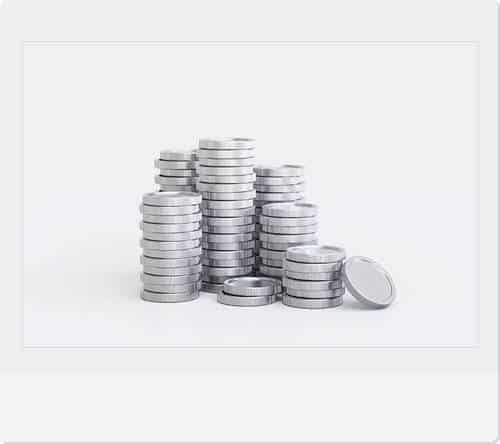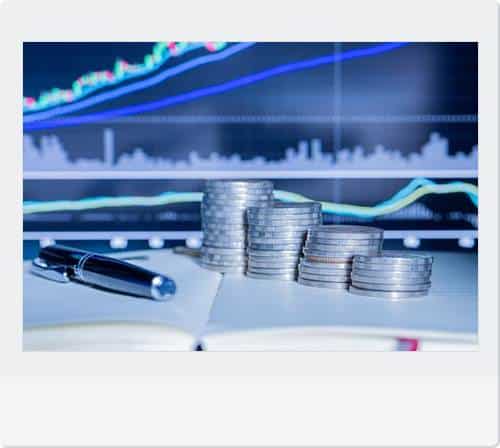Introduction
Silver trading is a form of commodity investing that involves the purchase and sale of silver contracts. Silver is a popular precious metal that has been used as a form of currency for centuries. It remains an important asset in many portfolios today, due to its relatively low volatility and history as a reliable store of value.
Trading silver can provide investors with both long-term capital appreciation and short-term profits through speculation on price movements in the spot market. This article will discuss some key points about silver trading in Hong Kong, including how to get started, what type of strategies work best, and the risks involved in this particular market.

What is Silver Trading?
Silver trading is a type of commodities trading that involves buying and selling silver. Silver is one of the most popular precious metals to trade, along with gold, platinum and palladium. Silver has been used as a currency for centuries and is still used today in jewellery, coins and other investments.
Silver is traded on the open market just like stocks, bonds or any other commodity. Traders can purchase physical silver bars or coins or they can purchase contracts for difference (CFDs). CFDs are derivatives that allow traders to speculate on the price movements of an underlying asset without actually purchasing it.
There are several advantages to trading in physical silver versus CFDs. Physical silver offers more stability since prices tend to move slowly over time compared to stock markets which can be volatile at times due to news events or economic changes.
Benefits of Silver Trading
Trading in silver has become increasingly popular in the past decade, as investors look to diversify their portfolios and capitalize on the precious metals unique properties. Silver can offer investors several benefits, making it an attractive choice for those looking to expand their investments. Here are some of the key benefits of silver trading.
1. Low Cost: One of the primary advantages of trading in silver is its relatively low cost compared to other precious metals such as gold and platinum. This makes it an ideal option for investors who may not have a large amount of capital available to invest but still wish to see returns from their trades. Additionally, since prices are generally lower than gold or platinum, there is less risk associated with investing in silver which could result in higher returns over time.
2. Volatility: Another advantage that comes with trading silver is its volatility when compared with other assets such as stocks or bonds – meaning that prices can change rapidly within a relatively short amount of time due to market forces or external economic events such as currency devaluation or inflationary pressures from governments around the world.
Advantages of Silver Trading Compared to Other Markets
Silver trading has been gaining popularity in recent years due to its advantages compared to other markets. Silver is a precious metal, known for its industrial and investment applications, and it’s becoming an increasingly attractive asset for investors. Here are some of the advantages of silver trading compared to other markets:
1. Low Trading Costs: Compared to stocks and other commodities, silver trades have much lower transaction costs. This makes it more accessible for smaller investors who may not be able to afford expensive commissions associated with certain markets.
2. Price Volatility: Silver prices can be highly volatile, making it an attractive option for traders looking to capitalize on short-term gains or take advantage of price fluctuations in the market.
3. Liquidity: Silver is one of the most liquid assets available on the market today, meaning that traders can enter and exit positions quickly without having to worry about slippage or high spreads associated with less liquid assets like stocks and currencies.
4. Diversification Benefits: Adding silver trading into your portfolio offers diversification benefits since it’s not correlated with stock or currency movements like many other asset classes are. This helps you hedge against risks in those asset classes while still benefiting from potential gains in silver.
The Risks Associated with Silver Trading
Silver has long been a popular asset for traders, with its low entry point and volatility allowing traders to make quick profits. However, silver trading carries a variety of risks that all traders should be aware of before they begin trading.
First and foremost, silver is very vulnerable to market manipulation. Because the supply of silver is relatively small compared to other commodities, it can easily be influenced by large market players with huge positions in the asset.
Getting Started in Silver Trading
Silver trading is a popular form of investment, and many people are interested in getting started. But before you can start trading silver, there are some things you should know. Here’s what you need to know about getting started in silver trading.
1. Research the Market: As with any form of investing, it’s important to do your research before jumping into the market. Understand how silver prices fluctuate and how different economic factors can affect the price of silver. You should also become familiar with different types of silver investments, such as coins, bars or ETFs (exchange-traded funds).
2. Choose Your Broker: Once you’ve done your research and have an idea of what type of investment strategy is right for you, it’s time to choose a broker who can facilitate your trades. Look for someone who offers competitive rates and has experience with silver trading specifically — not just general investing services.

Tips for Successful Silver Trading
Silver is a precious metal that is often used as a form of investment. Trading silver can be an excellent way to diversify your portfolio and generate a steady income. However, trading silver can also be risky, so it’s important to understand the risks associated with trading this commodity before you start investing. Here are some tips for successful silver trading:
1. Do Your Research: Before you start investing in silver, it’s important to do your research and understand the factors that affect its price. Learn about the different types of silver available for investment, such as coins and bars, as well as any upcoming developments that may impact its value. Make sure you are aware of any potential regulatory changes or economic events that could influence the market price of silver to make informed decisions when buying or selling this commodity.
2. Choose Your Platform Carefully: Silver trading can be done through many different platforms such as online exchanges or brokerages, so it’s important to choose one that suits your needs best and offers competitive prices and fees for trades.
Conclusion
In conclusion, silver trading can be a great way to diversify a portfolio and take advantage of the potential gains that come with investing in precious metals. It is important to understand the risks associated with silver trading, as well as the regulations that govern it. With proper research and understanding of the market, investors may be able to capitalize on silver’s potential for long-term success.
Leave a Reply
You must be logged in to post a comment.